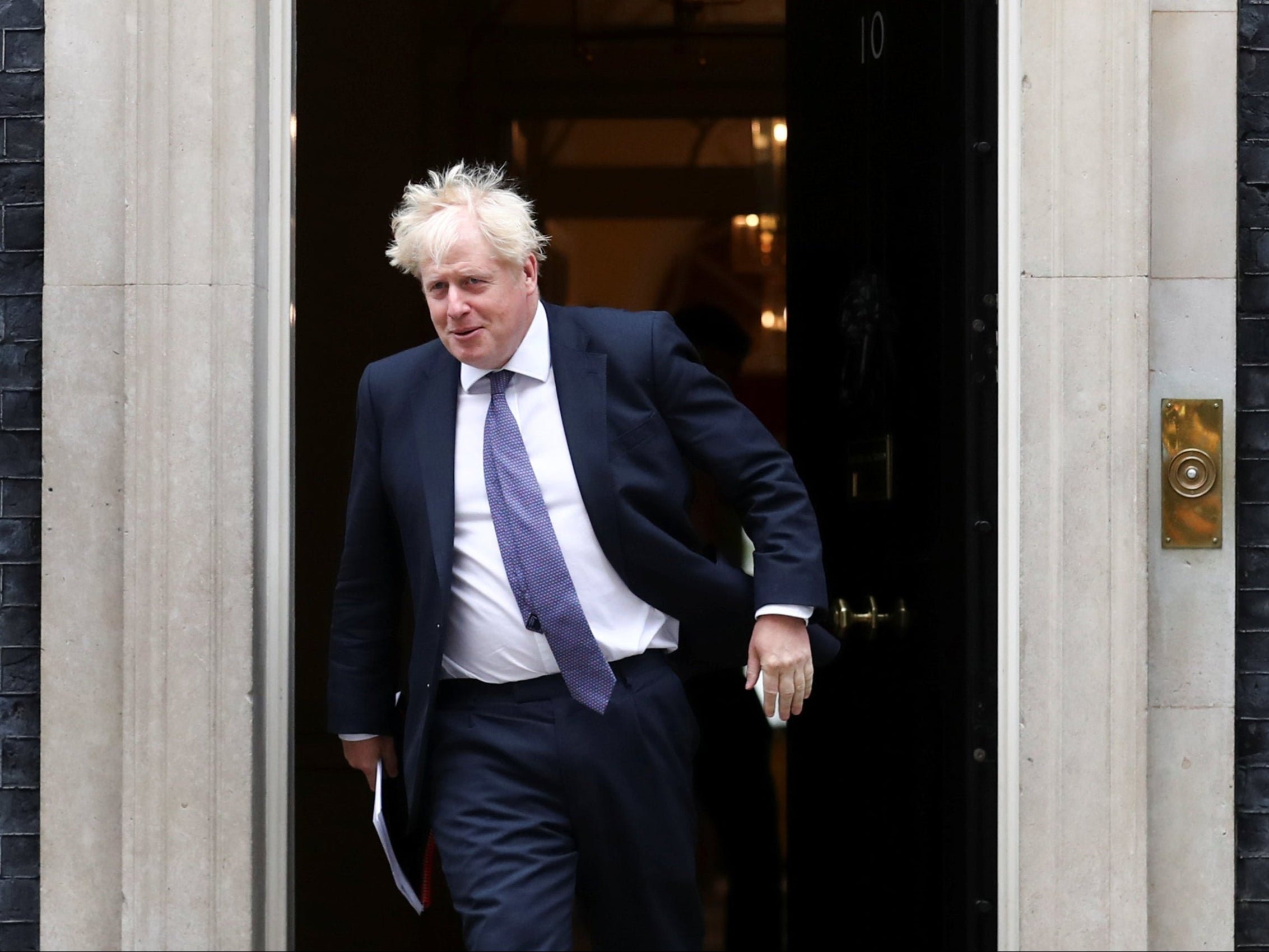Boris Johnson wanted to provoke a Brexit crisis – now he’s got one
The prime minister has sent out his proxies to cause legal mayhem – safe in the knowledge that Leave voters will back him, says John Rentoul


Why has Boris Johnson started an unwinnable battle over a legal technicality? Can it really be that he simply wants to dramatise the Brexit divide in British politics, because he thinks it will, in a Trump-like way, reinforce his support among the Leaver half of the population?
The prime minister’s attempt to break international law certainly seems doomed. Not because the European Commission will take the UK to court, as its vice president, Maros Sefcovic, threatened to do today. The “mechanisms and legal remedies” of which his statement spoke mainly involve appealing to the arbitration procedure set out in the UK’s withdrawal agreement with the EU, but that would take months if not years.
No, the reason Johnson’s provocation will fizzle out is that he won’t be able to get the bill – the UK internal market bill, which threatens to override the withdrawal agreement – through parliament. I am not sure that 39 Conservative MPs will vote against a bill that contains express provision for breaking international law. Sirs Robert Neill and Roger Gale will not be the only Tory backbenchers to say they’ll vote against it, but there may not be enough of them to overturn the government’s majority. Theresa May made her opposition clear in the Commons on Tuesday, but I’m not convinced she would go so far as to vote against her successor.
But the bill has no chance of getting through the House of Lords. Johnson has ennobled a handful of Brexiteers recently, including, controversially, Claire Fox, the former Brexit Party MEP and one-time defender of the IRA – but not nearly enough to overcome the huge double majorities of Remainers and lawyers that already dominate the chamber.
So it seems that the prime minister is engaged in play-acting, as he was last year, when he prorogued parliament in such a way that made no difference to Brexit, but which made it look as if he was trying very hard to get Britain out of the EU in the teeth of domestic opposition.
What is really striking about Johnson’s latest provocation is that he has not said anything explicit about it himself. He was challenged ineffectually by Munira Wilson, the Liberal Democrat MP, at Prime Minister’s Questions yesterday, and simply declared blandly: “We expect everybody in this country to obey the law.”
His government’s intention to break international law was made public first by an anonymous leak over the weekend, and then confirmed by Brandon Lewis, the Northern Ireland secretary, in the House of Commons on Tuesday. That was when Sir Jonathan Jones, the government’s top legal adviser, resigned. But it wasn’t until today that Suella Braverman, attorney general, and minister responsible for the government’s legal advice, put out a statement saying, “It is an established principle of international law that a state is obliged to discharge its treaty obligations in good faith … however …”
Lord Keen, the government’s most senior law officer in the House of Lords, came forward to defend the bill – from attack by Michael Howard, the Brexiteer former leader of the Tory party – but the prime minister hasn’t said anything about it directly yet. It is as if he has sent his proxies out to cause mayhem and sat back to observe the results with satisfaction, from a distance.
None of which means that there is no issue of substance here. This is not an entirely confected row. But part of it is a problem that was foreseen. The reason Johnson was asked about exit summary declarations for goods going from Northern Ireland to the rest of the UK in the election campaign last year was that Northern Irish business people were worried about them. Johnson promised they wouldn’t be required – “throw that form in the bin” – but he had already finalised the withdrawal agreement which said that they would be.
He might have hoped that the EU wouldn’t insist on them when it came to it – they seem like a pointless bit of bureaucracy, after all. But it obviously dawned on him recently that, if the EU, with its tendency to pointless bits of bureaucracy, refused to be helpful to a departing member, he would be stuck.
So it would seem he has decided to blow the whole thing up. If the trade talks are heading for deadlock anyway, he must have calculated he would take an impossibly hard line. That way, either the EU would give some ground (unlikely, admittedly) or the UK would get a head start in the blame game.
But what happens when the House of Lords amends the bill? By then, Disrupter Johnson will be on to his next diversionary expedition. In the meantime, Johnson can pose for his voters as the defender of the British national interest, with a lot of guff about parliamentary sovereignty thrown in. It worked for him last year; but at some point the high-risk game will stop working.




Bookmark popover
Removed from bookmarks